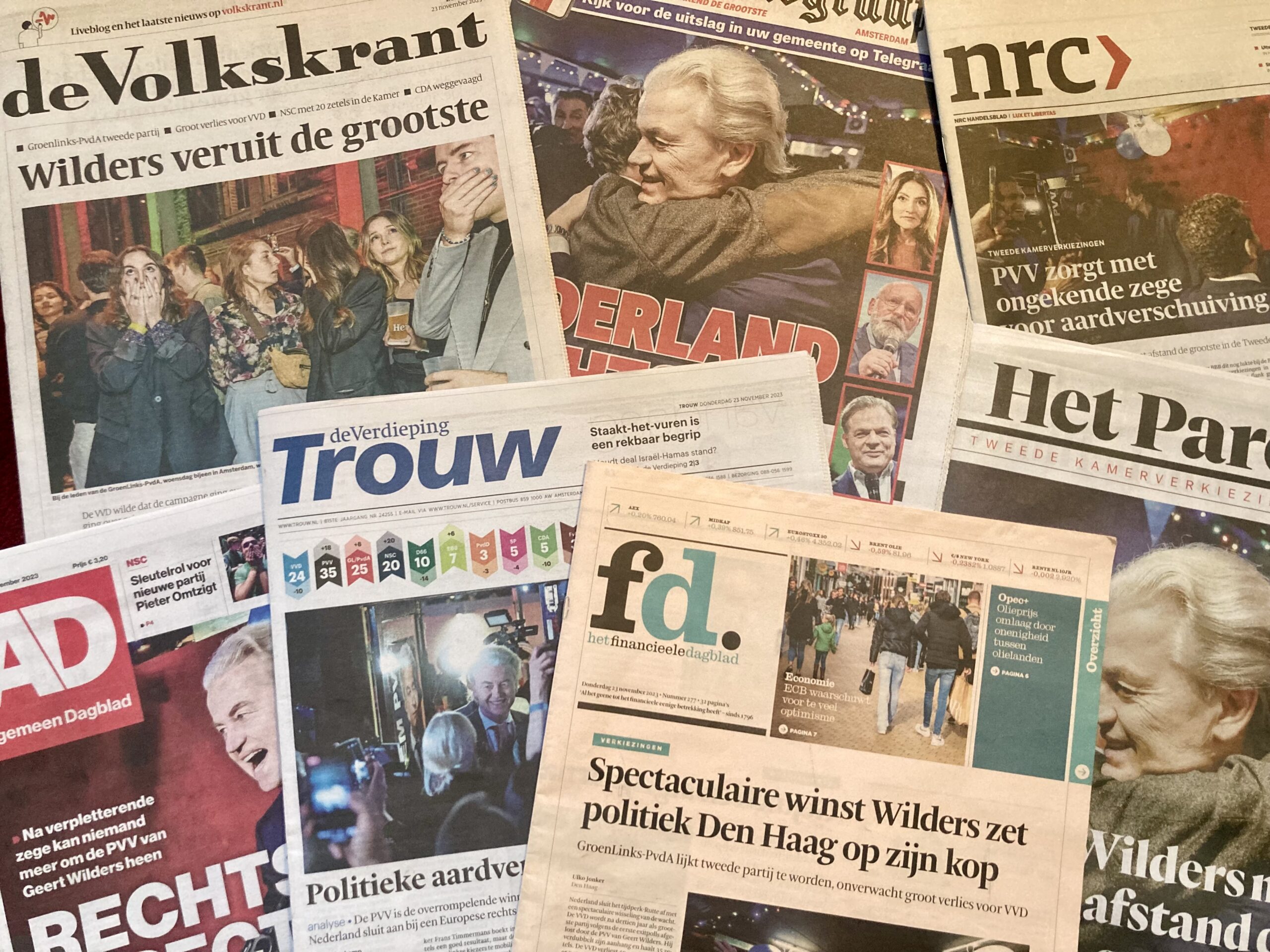Coalition partners “have no common vision”: what the papers say
Hanneke Sanou
Bien etonnés de se trouver ensemble, a marriage of convenience… however the new coalition is described, the Dutch papers detect little love and much future strife among the partners.
The new coalition marks a turning point in Dutch political history, but, apart from the asylum plans, much remains the same. Nevertheless, the finances will leave much to bicker over, the Financieele Dagblad commented.
A close read of the agreement shows that many of the policies started by Mark Rutte’s fourth government have either not been touched or only slightly tinkered with, the paper said.
These include the climate fund, which was habitually criticised by Wilders, a new wind farm in the North Sea, and subsidies for industrial polluters to go greener. Support for Ukraine will also continue, as will free childcare and the aim to build 100,000 homes a year.
Telegraaf political commentator Martin Visser is surprised “not a word” has been written about the pension system which is about to change radically. Wilders’s promise to bring back the pension age to 65 “belonged in the fairy tale category” anyway and the least said about that the better, he said.
But the new system and the issue of early retirement for people in physically demanding professions should at least have had a look in, he said, particularly because it leaves many people guessing about their early retirement status.
With BBB and PVV opposing the new system and NSC wanting far-reaching changes the pension overhaul might be delayed, and that, Visser said may lead to the demise of “a much-needed” change.
In its analysis the Volkskrant concentrates on the effect of what EU diplomats have called the “war on three fronts” declared by the Dutch.
The belligerent opt-outs concern asylum, the environment and a €1.6 billion discount on the Dutch contribution, all of which are “illusions”, diplomats say. This is because any opt-out would take years of negotiation and would, for instance in the case of a projected stop on processing new asylum requests, very likely end up in considerable fines.
The NRC talks about the elephant in the room: the ideological disparity between the four parties which now find themselves shackled in an uneasy pact. On presenting the accord, all four talked to their own voters, the NRC said, but “no common message” was forthcoming.
It is telling that when asked what binds them, the answers ranged from “the accord” (Wilders), “pragmatism” (Van der Plas), “taking people’s worries seriously” (Yesilgöz) and “the housing crisis and financial security”(Omtzigt), the paper said.
No vision
The four have no common vision on society, the paper said. “If the government parties are first and foremost representing themselves how will this look like a stable government?” the NRC asked.
Trouw columnist Stevo Akkerman comments on the “normalisation” of the PVV, the latest attempt at which was made by parliamentary chair Martin Bosma, who said he objected to his party being labelled “extreme right” as this would associate the party with the Nazis.
Akkerman, however, does not think the past should be “whitewashed”, including Wilders’s attacks on Eric van der Burg, who was moved to tears because his law to force more councils to take in refugees was demolished as part of a much harsher asylum policy.
“The diversity of an open society shaped by a parliamentary democracy is something he cares nothing about,” Akkerman said. “I call that extreme right wing.”
Thank you for donating to DutchNews.nl.
We could not provide the Dutch News service, and keep it free of charge, without the generous support of our readers. Your donations allow us to report on issues you tell us matter, and provide you with a summary of the most important Dutch news each day.
Make a donation